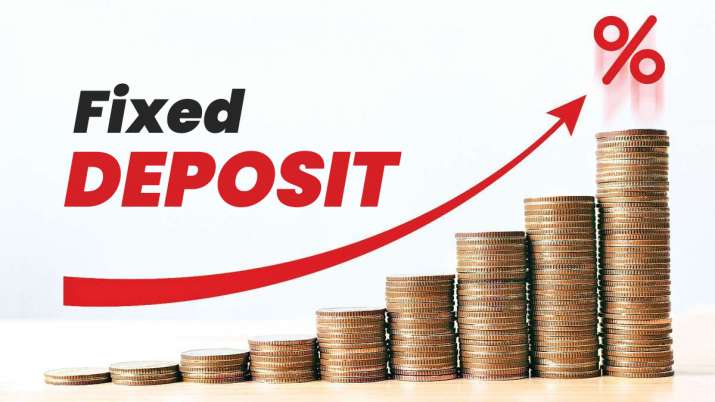In these unprecedented times, when more individuals look for safe, reliable, and lucrative investment instruments, the first name that comes to mind is a fixed deposit. Fixed deposits are considered one of the safest investments to include in your portfolio to grow your wealth. Especially in recent times, when the economic situation and stock markets are impacted adversely due to many global issues, individuals look for guaranteed returns on fixed deposits.
Let us understand what a fixed deposit is and how fixed deposits work to provide guaranteed returns over the tenure.
What is a Fixed Deposit Investment?
Fixed deposits (FD) are low-risk investments categorised as fixed-income financial assets. A fixed deposit is an instrument with banks where an individual can invest a lump sum amount. You can choose an FD tenure as per your financial needs. The interest rate on the deposit is fixed as mandated by the bank and will remain the same over the tenure of deposit. The interest rate will remain fixed and unaffected by market forces for the entire tenure. And the interest income can be received periodically or at the maturity date as per the investor’s choice. Therefore, fixed deposits are a safe investment option offering a flexible tenure facility and generating regular income.
Types of Fixed Deposits
There can be different types of FDs.
- Regular FDs: It is an FD scheme wherein you can invest an amount at a predetermined interest rate for seven days to twenty years.
- Senior Citizen FDs: These are specific FDs for individuals above sixty years. Usually, these FDs offer an additional interest rate over regular FDs and provide tax benefits if the annual interest on FDs is below Rs.50,000.
- Tax-Saving FDs: There are special tax-saving FDs. The depositor can take benefit of tax deductions under section 80C of the Income Tax Act in India. The FD tenure is five years.
- Flexi FDs: This FD account is linked to your current or savings account in a bank. It has the facility of automatically transferring a sum beyond a balance to your FD account via an auto sweep-in feature. For example, if you need to maintain a monthly bank account balance of Rs.15,000, the excess amount will be transferred to your FD. If your bank balance falls below Rs.15,000 in any month, the bank will withdraw a portion of your FD and maintain your balance.
Interest Rate on Fixed Deposits
The current FD rate of interest is around 6.65% with reputed banks. The interest depends on various factors, including the tenure of the FD. You will earn a lower interest rate on a one-year fixed deposit than on a three-year FD due to the time risk of money. The value of a rupee today is higher than one year from now because of inflation. You can buy more goods today with a rupee than you will be able to a year from now. The depositor needs to be compensated for this.
There are two options to receive interest.
- Cumulative Interest on FDs: You can choose a cumulative FD to reinvest the interest amount whenever it is payable. It will increase your interest amount with the power of compounding. You will receive the interest at maturity with the principal. It will keep accumulated as it is reinvested every year. The cumulative FD is suitable for depositors who do not need a regular income. The interest will be calculated on the previous year’s interest plus the principal.
- Non-cumulative FDs: Here, you can choose from monthly and quarterly interest payouts, depending on your needs. You will receive interest at regular intervals. Individuals choose this option for a regular stream of income.
The basic formula for FD interest calculation is as follows:
Interest on Fixed Deposit = Principal x Rate of Interest x (Tenure/ 12 months)
However, the interest amount differs depending on your preference for cumulative or non-cumulative FD.
Premature Closure
Depositors are allowed to withdraw the funds from their FDs before the maturity date. Generally, you can close the FD account prematurely after crossing six months of opening the FD account. It can be three months with some banks.
Thus, no matter how interest rates move in the country, you will get fixed returns once you have deposited your funds in an FD. It helps you to accumulate a significant amount over time. The current FD rate of interest can give you returns @6.65%.


More Stories
Versatile Universal Load Cell for Aircraft Weighing – MODEL: UNV, UNV-C
Why Hiring A Content Writer For Your Website Is A Smart Concept
Brazilian Hardwood Decking: The Ultimate Outdoor Solution